2024 marked a year of research breakthroughs, entrepreneurship, and community building for the Cheriton School of Computer Science. From revolutionizing health care to unravelling the secrets of artificial intelligence, our staff, faculty, students and alumni continue to push the boundaries of human curiosity. To celebrate, we have composed a list of our most noteworthy stories from each month.
January: Unraveling findings about the DNA of extremophiles
Professor Lila Kari and Pablo Millán Arias (PhD ’24) were part of a Canadian research team that made a groundbreaking discovery about bacterial and archaean extremophiles. These are organisms that not only survive but thrive in extreme environmental conditions including very high temperatures, crushing pressure, and high salinity. The team found that unrelated extremophiles that live in similar environments have similar genomic signatures.
“We could not believe our eyes, as it was so unexpected,” says Professor Kari. “This is in a way akin to finding out that your human DNA is more similar to the plant DNA of flowers in your garden than to the human DNA of your cousin who lives on another continent.”
February: Using technology to help humans flourish
Computer Science Professor Edith Law pens this op-ed on how we can harness the power of new technologies ethically for the betterment of humanity. Currently, her research focuses on social computing technology and machine intelligence interactions, such as “The Newcomer App,” which connects immigrants and refugees with organizations to improve their sense of belonging.
“Incorporating human values into technology is a complex but a worthwhile endeavour. Values are deeply personal and shaped by cultural, philosophical and societal influences,” says Professor Law. “The ethical dimensions of technology development and deployment demand thoughtful consideration. It's crucial to assess when technology should be used and when it may be better to abstain, always putting human welfare first.”
March: Can you tell AI-generated people from real ones?
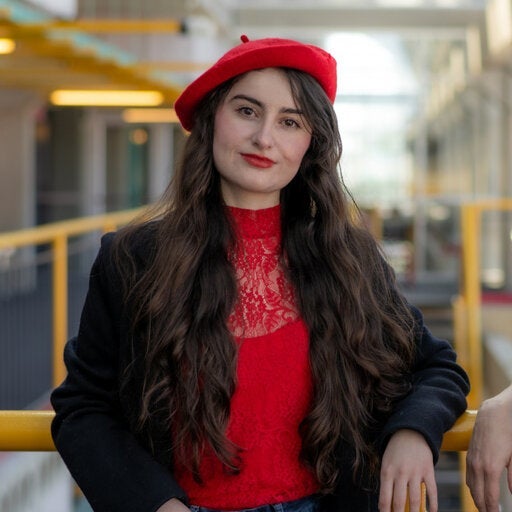
PhD candidate Andreea Pocol led a study where 260 people were given 20 unlabeled pictures: 10 were of real people, while the rest were AI-generated. Despite paying close attention, the participants were duped by AI-generated images 39 per cent of the time, sounding the alarm for the “new AI arms race”.
April: Decades of Water Data
In our Earth Day feature, Cheriton researcher Doug Mulholland (BMath ’82) discussed co-developing the Flowing Waters Information System (FWIS). Established in 2009, the FWIS houses data on around 1,000 streams in Ontario, such as size, fish species including invasive or at-risk, and temperatures. Some of these measurements are from the early 1900s, which could have been lost if it wasn’t for Mulholland’s contribution.
He also dives into Ontario’s environment– such as its improvements– and how we can be “stewards of the environment”.
May: Four Waterloo-founded startups earn $2 million seed funding
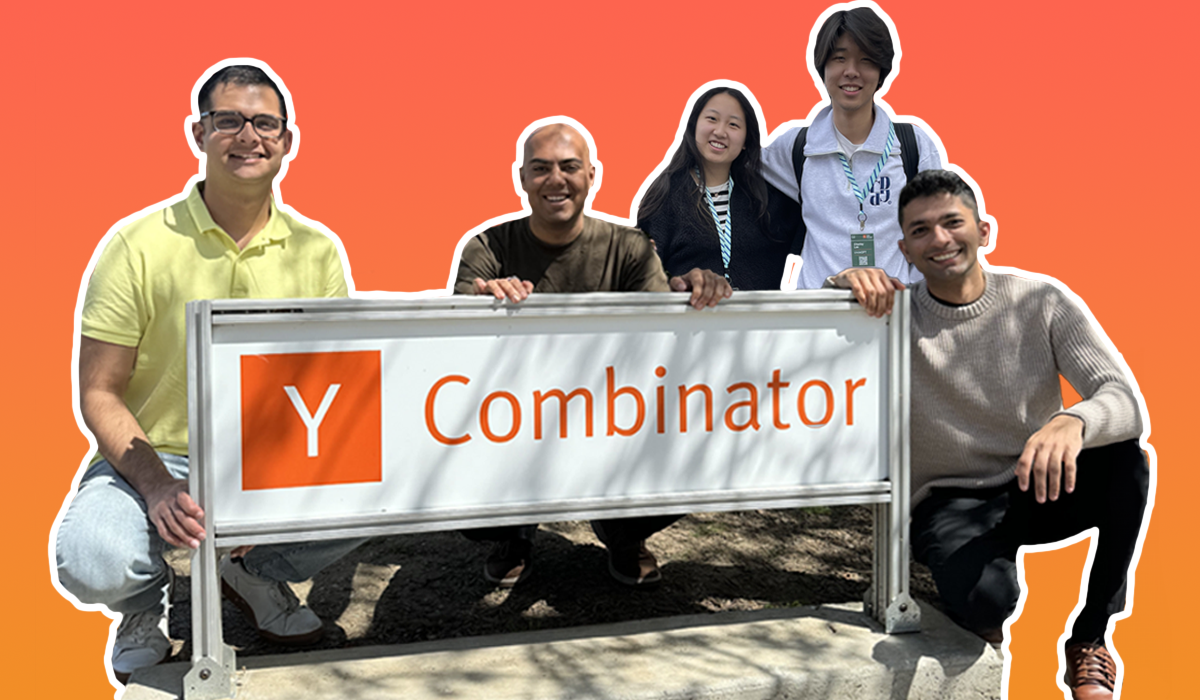
Four Waterloo-based startups, Attunement, Blacksmith, Datacurve and DraftAid, received millions of seed funding through Y Combinator— one of the world’s biggest and most prestigious startup accelerators. From revolutionizing large language models to transforming serverless computing, Waterloo students and alumni continue to reach new heights in entrepreneurship.
June: RAGE against ChatGPT

A Waterloo-based research team has created a new tool – nicknamed “RAGE” – that reveals where large language models like ChatGPT are getting their information and whether that information can be trusted.
“We’re in a place right now where innovation has outpaced regulation,” says the study’s lead author and PhD student Joel Rorseth, “People are using these technologies without understanding their potential risks, so we need to make sure these products are safe, trustworthy, and reliable.”
July: Less highlighting may mean more learning
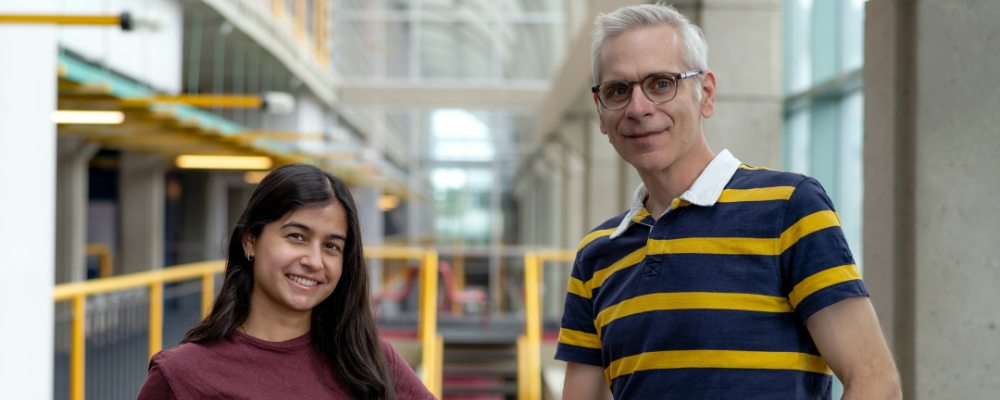
PhD student Nikhita Joshi and her supervisor Professor Daniel Vogel discovered that technology that restricted the number of words a user can highlight could affect their reading comprehension. This groundbreaking study won the Best Paper Award at the 2024 Conference on Human Factors in Computing Systems (CHI)— the premier international human-computer interaction conference. It was also reported by various news sites, including Phys.org and MSN News.
August: New startup helps credit card users maximize rewards and savings
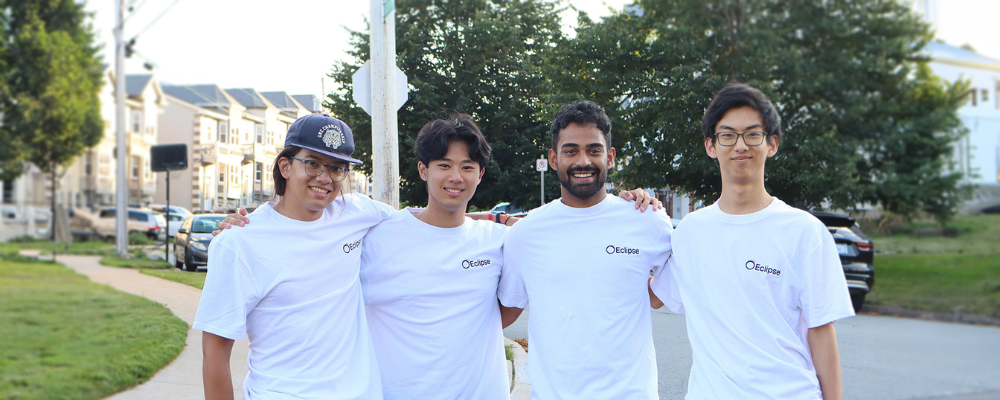
Third-year computer science student Mingchung Xia co-created Eclipse, a smart digital wallet. Using the power of machine learning, the app recommends the best credit card to use at every payment and provides personalized card suggestions. It’s like Apple Pay but with more advanced features.
Hailing from Halifax, Mingchung co-founded Eclipse with high school friends, because they wanted “to make the entire credit card process easy, not just for us, but for everyone.”
September: Bringing computer science into the artist’s studio
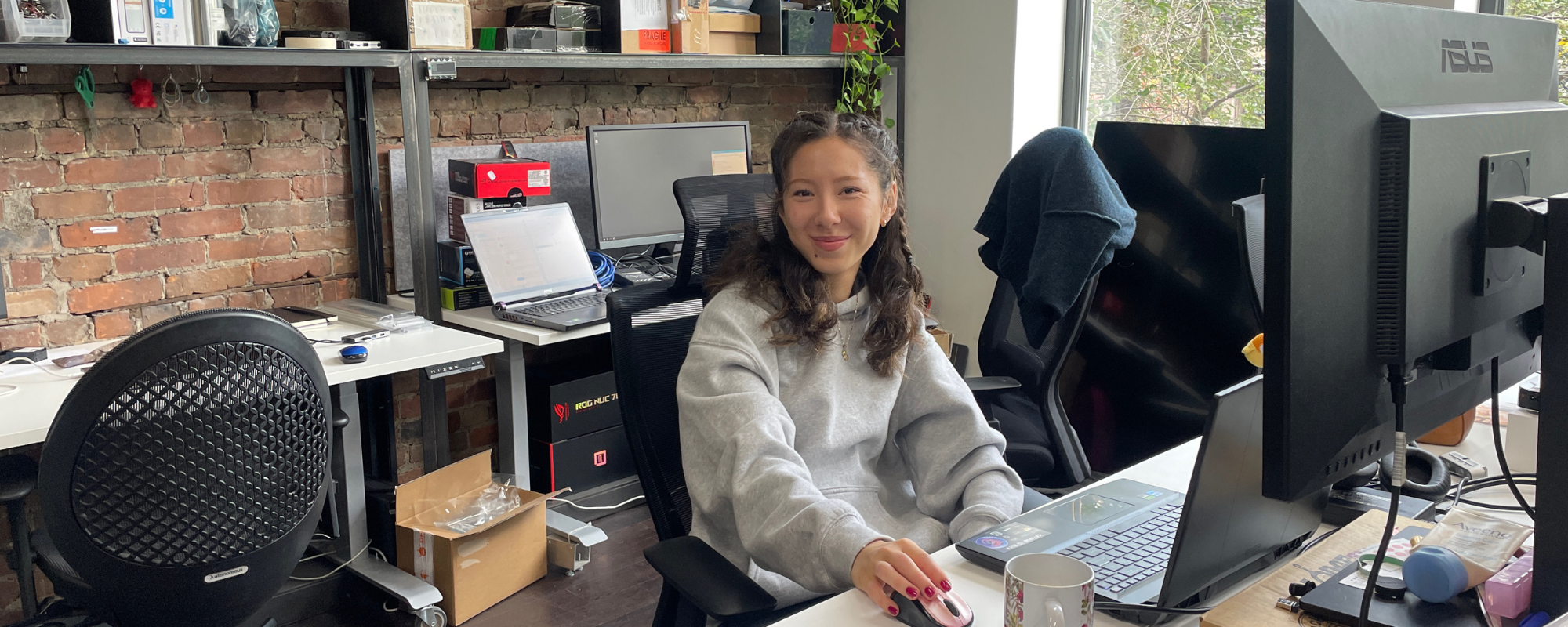
Last year, we launched Alum Q&A. In this series, our alumni discuss their latest endeavours and share career and academic advice. One of our features includes Saralin Zassman (MMath '24), who works with internationally renowned media artist Rafael Lozano-Hemmer in Montreal.
“Art and computer science both involve a sort of freedom of expression. There’s rarely a single ‘right way’ to create something with code, just like there are endless possibilities when creating art. So there is a shared some level of creativity in how you approach a problem; that’s one of the reasons why I enjoy this work so much.”
October: Computer science students' art lit up Uptown Waterloo

Three Computer Science students, Georgia Berg, Hannah Choi, and Rayhan Moidu (BCS ’24) showcased their illuminating artwork at the annual Lumens Festival. This work was from the Winter 2024 CS/FINE 383: Computational Digital Art Studio class, which explores the intersection between computer science and fine arts, such as real-time animation and computer graphics.
The trio’s art tackled themes of attachment, surrealism and religion, attracting 3,000 attendees in Uptown Waterloo.
November New AI chatbot could be the ‘door’ to mental health
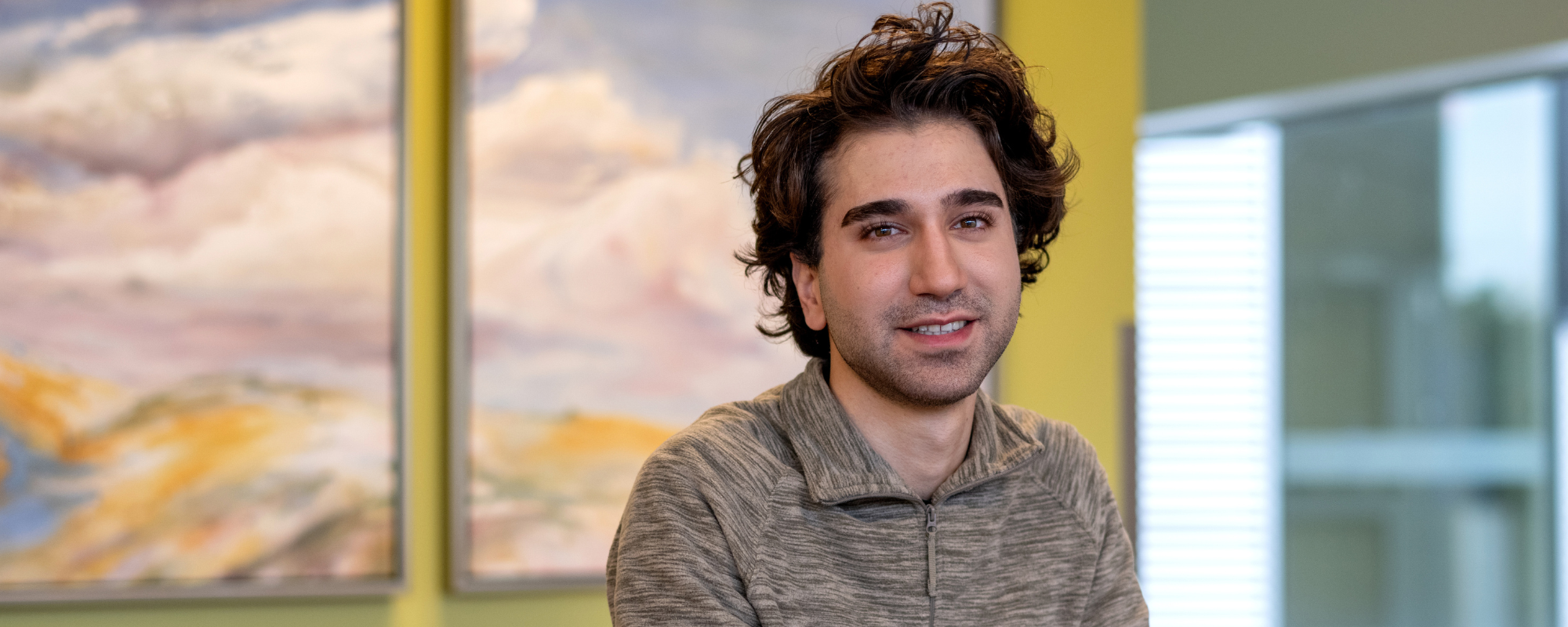
Rastin Rassoli, a computer science and psychology student, developed an AI-powered app to help people exhibiting early signs of a mental health condition. Named “Doro,” the chatbot offers 30-minute chat sessions where users can express their concerns about anything, from feeling overwhelmed with an assignment to self-esteem issues. Doro will then share various cognitive and behavioural techniques commonly used by therapists like journaling, exposure or mindfulness.
Recently, the app was deployed at Campus Wellness and 30 clinics across Canada, making support more accessible and affordable.
December: Using AI to save farmers’ lives, time, and money
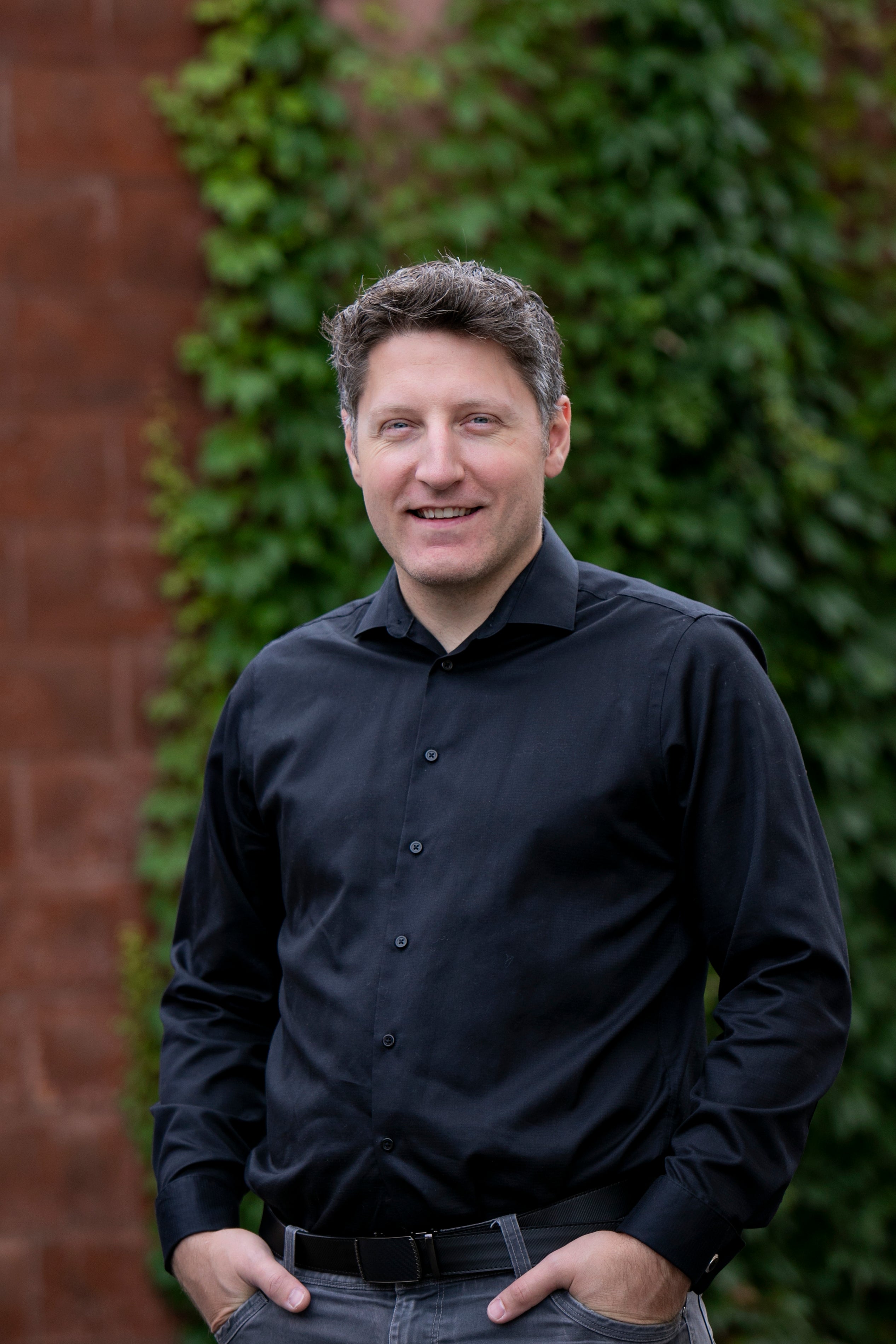
Nathan Hoel (BCS ’08) co-founded BinSentry, which creates AI-sensors that can determine a feed bin’s inventory. This innovative technology can help farmers accurately estimate production, without “relying on archaic methods”.
The startup has grown exponentially since its humble beginnings in a rented garage in New Hamburg. It has entered various markets across North and South America and has secured millions in Series B funding.
In our latest Q&A, he discusses BinSentry’s cutting-edge technology, his unconventional entrepreneurship journey, and his love for the City of Waterloo.